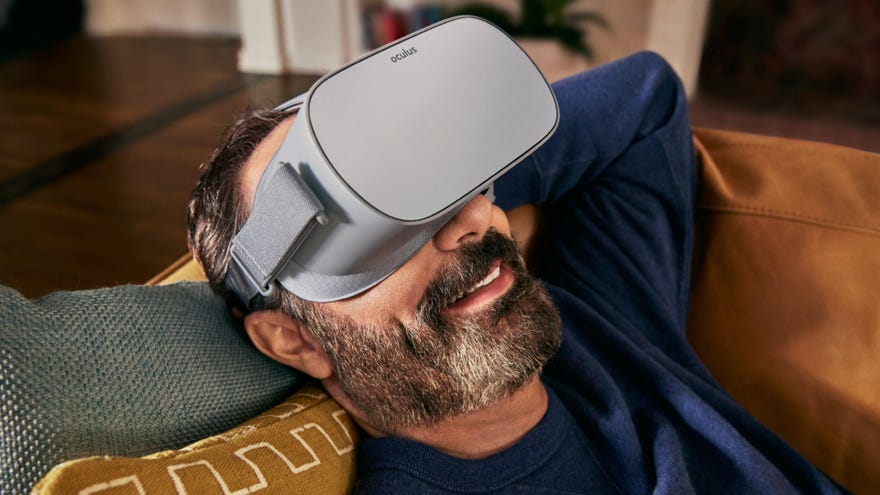Oculus Go is going away this December
Oculus Go is now Oculus Gone
Oculus have announced they're ending sales of the Oculus Go this year, just two years after it first launched. The all-in-one Oculus Go was the precursor to the now wildly popular Oculus Quest, offering an untethered VR experience that didn't rely on you on having a particular kind of phone or a powerful PC. It also cost a fraction of the price, with 32GB models starting from £139 in the UK. Alas, Oculus have decided that the Go's three degrees of freedom tracking (3DOF) isn't good enough any more, and they won't be shipping any more 3DOF products going forward, meaning the Oculus Go will very soon be the Oculus Gone.
Oculus didn't name an exact date for when they'll be stopping sales of the headset in their recent blog post, but they said they won't be shipping any new features for the headset moving forward, and they won't be accepting any new Oculus Go apps or app updates into the Go Store after December 4th 2020. They'll also won't add any new apps to the store after December 18th 2020.
Existing Oculus Go owners will, of course, still be able to use their headsets after this date, and Oculus have said that they'll continue to maintain the system software with bug fixes and security patches until 2022. The headset will also continue to work after that date as well, but any lingering problems will go unfixed. If you're at all worried about what this means for your headset, then Oculus have encouraged users to contact Oculus Support.
The main reason behind the Oculus Go's imminent departure seems to be its limited 3 DOF tracking capabilities. "Just past the one-year anniversary of Quest, we’re humbled by its continued success," Oculus wrote in their blog post. "The community response has been overwhelmingly positive, and you’ve told us loud and clear that 6 DOF feels like the future of VR. That’s why we’re going all-in, and we won’t be shipping any more 3 DOF VR products. We’ll end sales of Oculus Go headsets this year as we double down on improving our offerings for Quest and Rift."
Oculus didn't give much away as to what those "doubling down" efforts might entail, but they did reveal that starting in early 2021, developers will be able to share and distribute apps for the Oculus Quest without having to go through the Oculus Store. Again, quite what form this new distribution method will take is currently unknown, but one thing we do know is that it won't require users to manually sideload apps onto their Quest. Oculus also said they hope this new method will make it easier for developers to test early-stage applications and distribute them to specific headset owners, which sounds like something akin to Apple's current TestFlight system if you ask me, but we won't know for sure until Oculus unveils it full later this year.
In the mean time, RPS in peace Oculus Go.

